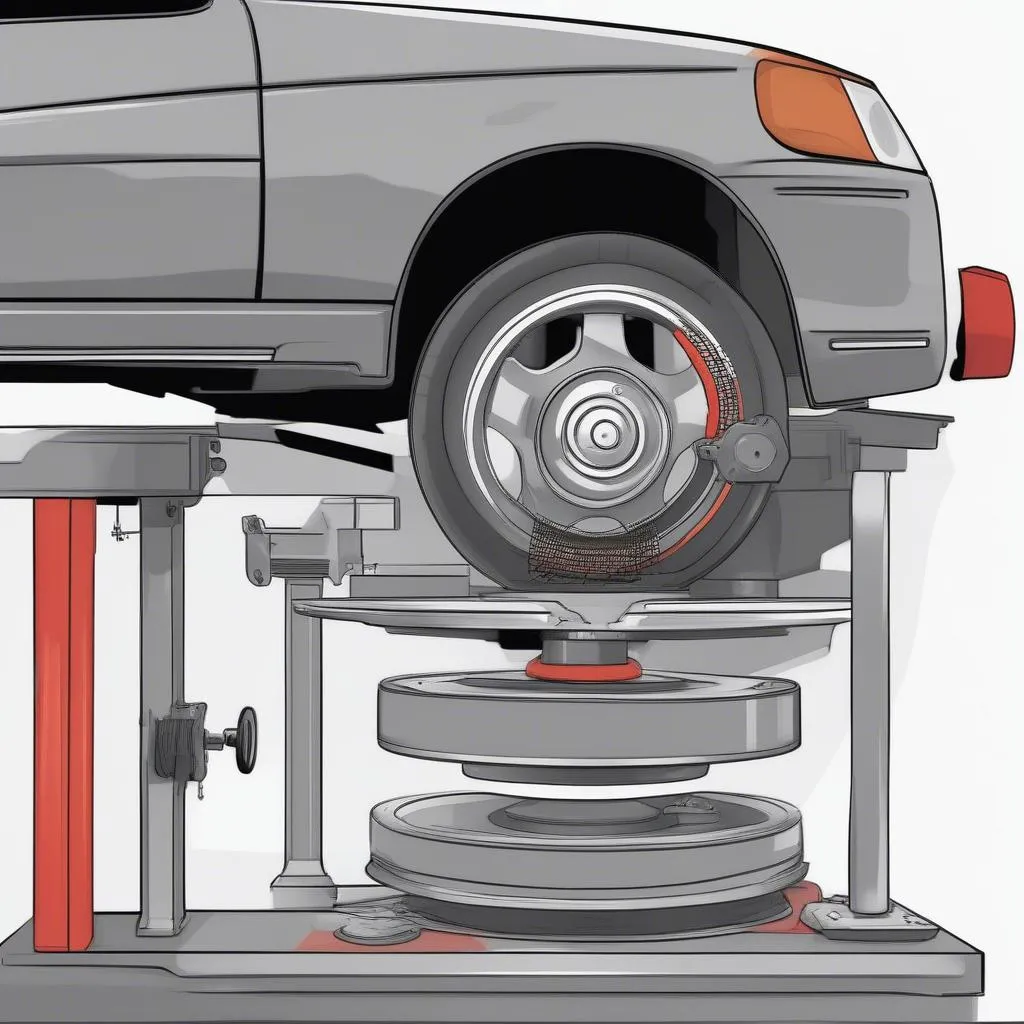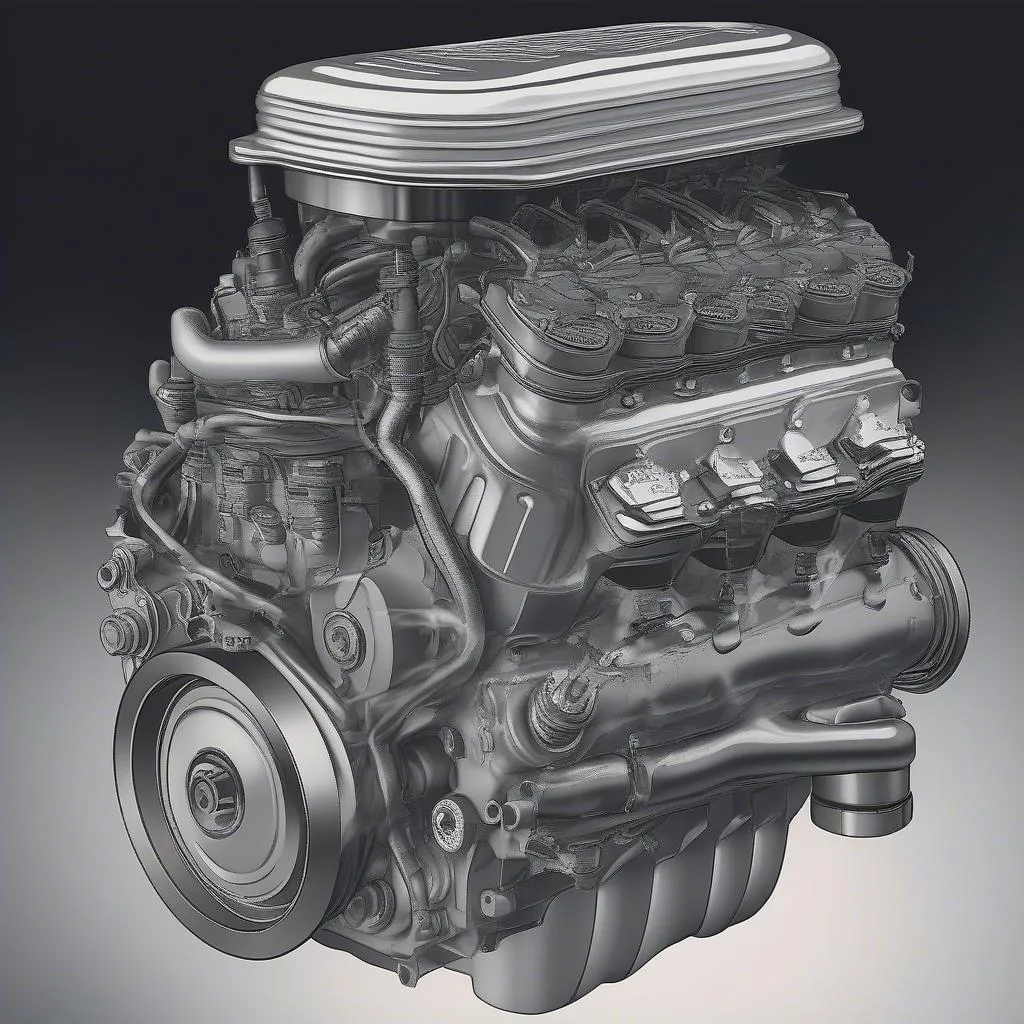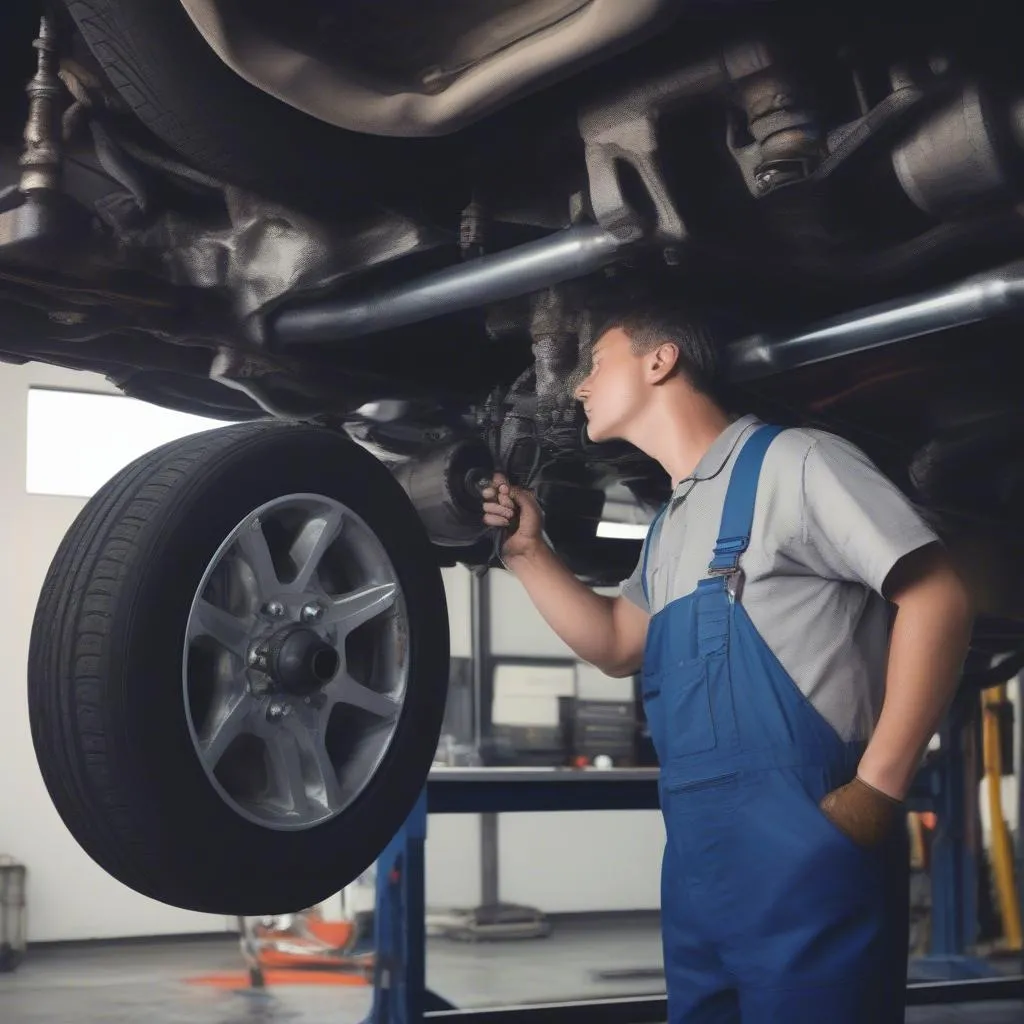Have you ever been driving down the road, feeling like your car is shaking like a bowl full of jelly? It can be a scary experience, especially if you’re not sure what’s causing it. Don’t worry, you’re not alone! Car shaking while driving is a common issue that can be caused by a variety of factors.
Understanding the Problem:
A car shaking while driving can be caused by several issues ranging from simple to serious. From the perspective of an auto mechanic, it’s crucial to understand that vibrations can stem from various components in your vehicle. It could be something as simple as a flat tire, or it could be a more serious issue like a problem with your engine, transmission, or suspension. Understanding these complexities is crucial for diagnosis and repair.
From a technical standpoint, the issue can be linked to a lack of balance in the rotating parts of the car, which can be attributed to various factors like worn-out parts, loose connections, or misalignment. This lack of balance disrupts the smooth operation of the vehicle, leading to the jarring vibrations you feel while driving.
Solutions:
1. Wheel Issues
a. Flat Tires
Imagine you’re driving on a tire with a slow leak; it’s like trying to balance on a wobbly stool. Your car’s wheels are designed to roll smoothly, and even a small flat tire can create a noticeable vibration.
b. Worn-out Tire Tread
You know how you feel uneven pavement with your bare feet? Well, worn-out tire tread can create a similar sensation in your car. The tires act like a bridge between the road and your vehicle, and when the tread wears down, it becomes less effective at absorbing bumps and vibrations.
c. Wheel Imbalance
Every wheel has a specific weight distribution, and if it’s off, it’s like spinning a lopsided coin. This imbalance creates vibrations, especially at higher speeds.
d. Wheel Alignment
Think of your car’s wheels as a team of four athletes: each needs to be aligned correctly for a smooth performance. Misalignment can affect how your car handles, causing it to pull to one side and even create vibrations.
Solution: If you suspect a tire problem is causing the shaking, it’s crucial to check the air pressure, tread depth, and overall condition of the tires. It’s also a good idea to get your wheels balanced and aligned professionally to ensure they’re in top shape.
2. Engine Issues
a. Misfires
Misfires happen when a cylinder doesn’t ignite properly, causing the engine to jerk and shake. This can be caused by issues with the spark plugs, ignition coils, or fuel injectors.
b. Worn-out Engine Mounts
Engine mounts are like shock absorbers for your engine, keeping it from bouncing around too much. Over time, these mounts can wear out, allowing the engine to move more freely and create vibrations that transfer to the car’s chassis.
Solution: To identify engine issues, it’s recommended to use a diagnostic scanner to read the engine codes. A mechanic can then diagnose the issue and address it with the appropriate repair.
3. Transmission Issues
a. Worn-out Clutch
A worn-out clutch can cause shaking during acceleration, especially when starting from a standstill. It’s like trying to ride a bike with a slipping chain, where the engine power isn’t transferring smoothly to the wheels.
b. Transmission Problems
If your car is shaking at specific speeds, there could be an issue with the transmission itself. This could include a slipping clutch, worn-out gears, or a faulty torque converter.
Solution: A mechanic needs to inspect the transmission for any problems. This may involve a thorough inspection of the clutch, gears, and torque converter to identify the root cause of the issue.
4. Suspension Issues
a. Worn-out Shocks and Struts
Just like the engine mounts, shock absorbers and struts help absorb bumps and vibrations from the road. When these wear out, they become less effective, leading to a more pronounced shake or bounce.
b. Worn-out Ball Joints
Ball joints connect the steering system to the wheels and control the movement of the wheels. If they are worn out, they can lead to a shaky ride, especially during turns.
c. Loose Suspension Components
Sometimes, the issue isn’t necessarily a worn-out part but a loose one. Over time, bolts and other suspension components can loosen, causing vibrations to transfer to the car’s chassis.
Solution: A mechanic should thoroughly inspect the entire suspension system, including the shocks, struts, ball joints, and all components. They will also need to check for any loose bolts or other potential issues.
When Should You Seek Help?
If you notice your car shaking while driving, it’s always a good idea to get it checked out by a qualified mechanic. They can diagnose the problem accurately and recommend the best course of action.
Frequently Asked Questions:
Why does my car shake when accelerating?
This could be caused by various factors, including a misfire, worn-out engine mounts, or a problem with the transmission. It’s important to get your car checked out by a mechanic to pinpoint the specific cause.
Why does my car shake at high speeds?
This is often due to wheel imbalance, worn-out tires, or a problem with the suspension. However, it could also be a sign of a more serious engine issue.
Why does my car shake when braking?
Shaking when braking can be caused by warped brake rotors, worn-out brake pads, or a problem with the suspension.
Need Help?
If you’re experiencing car shaking while driving, don’t hesitate to reach out to us at Diag XCar. Our team of experienced auto mechanics is available 24/7 to help you diagnose and fix the problem.
You can reach us via WhatsApp at +84767531508. We are here to help you get back on the road safely and confidently!
Related Articles:
- Can a Bald Tire Cause Shaking?
- Car Shaking When Accelerating Past 40mph
- Car Shaking When I Drive
- Car Shaking When Speeding Up
 wheel balance
wheel balance
 misfire
misfire
 suspension inspection
suspension inspection
Let us know your thoughts in the comments below!